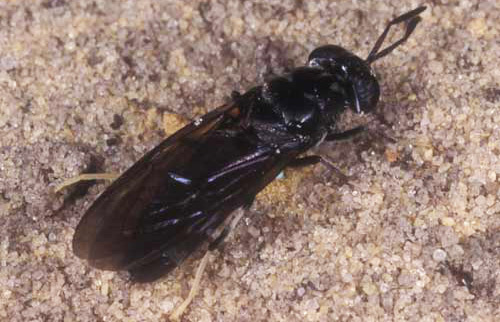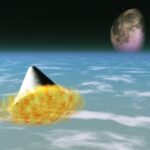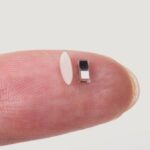For some of you this story may make you squeamish but an industrial designer, Katharina Unger, has designed a home insect-incubator called Farm 432. So why would you breed insects? For food silly.
Today almost 2 billion of us humans supplement our diets with insects. That’s not so far fetched when you think about it because here in North America we think nothing of eating lobster and crayfish, arthropods that are distant relatives of the six-legged creatures.
Farm 432 takes 432 hours (18 days) to turn one gram (0.035 ounces) of Black Soldier Fly eggs into 2.4 kilograms (5.3 pounds) of protein-laden food in the form of fly larvae and pupae.
Why these flies? Because they are not the irritating pest flies we hate and because they are great biowaste harvesters who carry no known human pathogens. The adult Black Soldier Fly doesn’t eat and lives for barely an hour just to reproduce. When the eggs hatch the larvae digest any compostable food scraps or biowaste you feed them. An average household can produce a kilogram (2.2 pounds) of food waste every day and when fed to these flies turn that waste into protein.
Black Soldier Flies are found throughout North America. They thrive in the presence of salt, alcohol, ammonia and other toxins. They can handle poultry and pig waste. They compete with other flies, the nasty ones we don’t like, and today are even being used to by doctors on patients to clean necrotic human tissue to prevent gangrene. The larvae can survive extreme oxygen deprivation. Immerse them in alcohol for two hours and they don’t die. These are truly remarkable creatures.
Recent studies have looked at Black Soldier Flies as a replacement for fish meal in animal feeds. But Unger goes one better. Why feed the animals when you can feed the humans who eat the animals? So Farm 432 incubates the Black Soldier Fly eggs which take over 4 days (102 to 105 hours) to hatch. The larvae are then fed table scraps and other household compostables. Two weeks later you have ready-to-harvest fly pupae that contain:
42.1% crude protein
34.8% ether extract (lipids)
7.0% crude fiber
7.9% moisture
1.4% nitrogen free extract (NFE)
14.6% ash
5.0% calcium
1.5% phosphorus
As food what would Black Soldier Fly go for? Fresh larvae as an animal food supplement is currently priced from $8.80 to $44 per kilogram ($4 to $20 per pound.) With no price yet announced for a Farm 432 you’ll just have to wait until Unger is ready to go to market. There is nothing strange or quirky about what she has designed. The United Nations, as I have written in the past, envisions humans making insects a good part of our diet in the future as our population grows to 9.5 billion by 2050. Check out the links provided in this posting and the pictures below.
For recipes on eating insects, check out the Eat-a-Bug Cookbook or Creepy Crawly Cuisine, both available through Amazon. Our future may be just a little bit weirder than you think.











